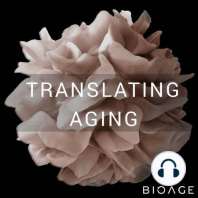1 min listen

Reversing Skin Aging at the Cellular Level (Carolina Reis Oliveira and Alessandra Zonari, OneSkin)
Reversing Skin Aging at the Cellular Level (Carolina Reis Oliveira and Alessandra Zonari, OneSkin)
ratings:
Length:
36 minutes
Released:
Aug 23, 2023
Format:
Podcast episode
Description
Dr. Carolina Reis Oliveira and Dr. Alessandra Zonari are the co-founders of OneSkin, a company developing science-backed skincare products to reverse skin aging at the cellular level. In this episode, Carolina and Alessandra tell host Dr. Chris Patil how OneSkin is leveraging recent advances in longevity science to create novel peptides that target senescent cells and inflammation in aged skin. Their lead ingredient, OS-1, is a peptide capable of reducing biological age and senescence burden in human skin models.They explain their rigorous discovery process, including screening peptide libraries in cellular models of skin aging, which were described in a recent paper in Nature Aging. Next, they share how they translated this scientific research into an effective, consumer-friendly skincare product line and brand. Listeners will gain insights into OneSkin's unique approach bridging cosmetics and cutting-edge geroscience.Key topics:Why skin health and appearance are important markers of overall agingThe cellular and molecular changes underlying skin agingHow most skincare products focus on temporary effects vs. targeting root causesScreening peptide libraries in cellular models to discover senolytic/senomorphic candidatesDiscovery and testing of lead peptide OS-1 in 3D skin models and human trialsValidating safety and efficacy to meet cosmetics regulatory requirementsLaunching a science-backed skincare brand and resonating with educated consumersOngoing R&D to expand into new anti-aging applications and delivery methodsQuotes:Quotes have been lightly edited for clarity."Obviously, we look at our skin from the lens of aesthetics or of beauty. But our skin is our largest organ, and its main function is to protect our whole body against pathogens and different types of environmental stressors. As the skin ages and deteriorates, the function also gets compromised."“That's one of the things that we're interested in and exploring at OneSkin: not only how to improve your appearance, but also how to improve your skin function so it can aid in your overall health.”"We realized none of the products out there were developed with the rationale of targeting aging itself.""When we treat dermal fibroblasts with this peptide, we could decrease the amount of senescent cells by 40–50%.""More and more, the population is getting educated. They don't want just marketing claims, they want to understand and trust brands that can really bring proof.""People are more open to say, okay, if I need to put something on my skin, I should use a company that's actually doing real science.""Our primary goal is to continue to be the most innovative company when it comes to skin aging, and to continue to be at the forefront of aging research applied to skin."Links: Email questions, comments, and feedback to podcast@bioagelabs.comTranslating Aging on Twitter: @bioagepodcastBioAge Labs Website bioagelabs.comBioAge Labs Twitter @bioagelabsBioAge Labs LinkedInOneSkin company page
Released:
Aug 23, 2023
Format:
Podcast episode
Titles in the series (51)
Trailer by Translating Aging